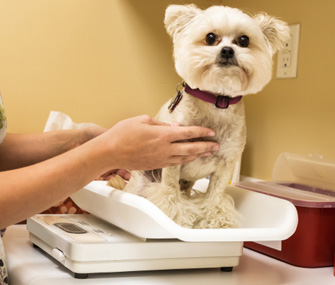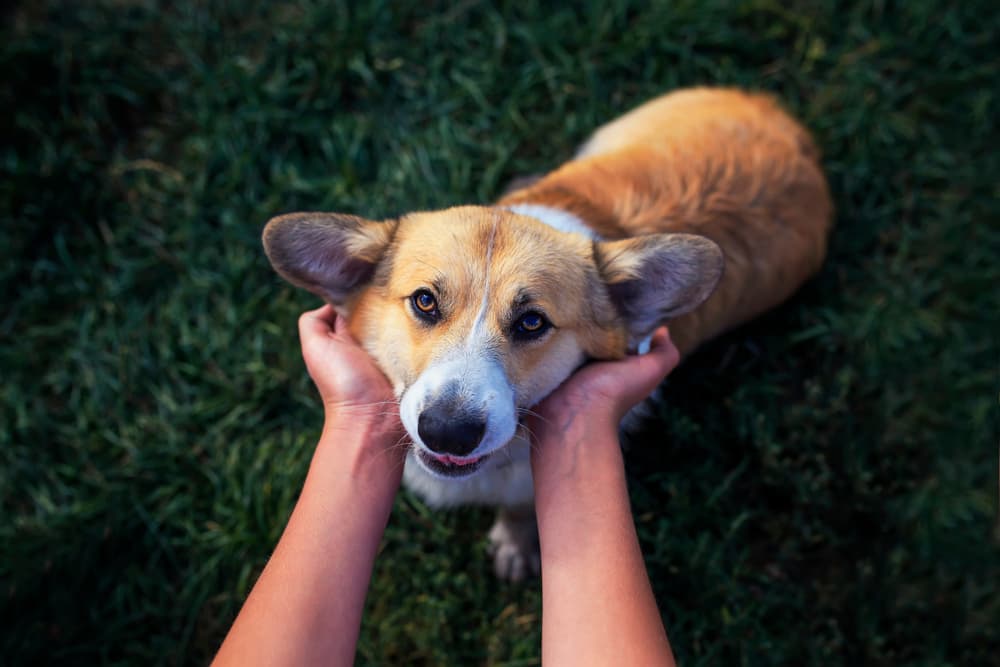Unexplained Weight Loss in Cats and Dogs
Published on July 12, 2011

When a pet loses a dramatic amount of weight for no apparent reason, you need to go to your vet as it can be a sign of disease. There may be an underlying condition that needs treatment.
Overview
In today’s world in which more than 50 percent of dogs and cats are considered overweight or obese, weight loss is often a desirable outcome for our sedentary, overfed pets. But when pets lose weight despite little effort on their owners’ parts to effect this change, it’s often an unwelcome symptom of disease. This is especially true in cases where weight loss is rapid or pronounced (more than 10 percent of body weight).
Causes
Pets can occasionally lose weight for a variety of relatively benign reasons:
- A change in diet can sometimes cause weight loss either because the pet finds the food less appealing or because it has fewer calories.
- A move to a new home, a change in schedule, or greater access to the outdoors can lead to weight loss if a pet becomes more active as a result.
- Geriatric pets can sometimes lose small amounts of weight as part of the normal aging process.
Persistent, rapid, or dramatic weight loss (greater than 10 percent of a pet’s body weight), however, can be the sign of a serious condition, such as:
- Liver disease in dogs and cats
- Periodontal disease in dogs and cats
- Thyroid disease in cats
- Kidney failure in cats and dogs
- Cancer
- Chronic gastrointestinal obstruction (as when foreign bodies are ingested)
- Diabetes in dogs and cats
- FeLV or FIV in cats
- Orthopedic or neuromuscular disease that leads to loss of muscle mass
What To Do at Home
If you notice weight loss in your pet, ask yourself a few simple questions:
- Is the pet otherwise feeling well or is she suffering from lethargy, poor appetite, vomiting, diarrhea, or any other obvious symptoms?
- Has the pet’s home life or schedule changed?
- Has the pet’s diet changed?
- Has the pet’s appetite or activity level obviously declined?
If changes in diet or activity level don’t seem sufficient explanation for the degree of weight loss (particularly if the pet’s weight loss is greater than 10 percent of her body weight), a veterinary visit is absolutely in order.
What Your Veterinarian Will Do
There are several steps a veterinarian may undertake to discern the origin of the weight loss.
- Get a history. When did you first notice the weight loss? How has it changed? How has your pet been otherwise? How is her appetite?
- Do a physical examination. What a pet looks and feels like can tell your veterinarian a lot about weight loss. What do her teeth look like? Does she look otherwise healthy? Checking out the entire pet helps establish what’s going on and is therefore considered an essential step.
- Do some basic lab work. A CBC (complete blood count), blood chemistry panel, thyroid hormone test, heartworm test, urinalysis, and fecal examination are considered basic. For cats, FIV (feline AIDS) and FeLV (feline leukemia) tests may also be recommended. For dogs, tick titers (blood tests to help diagnose Lyme disease or other diseases carried by ticks) might be in order.
- Take X-rays (radiography). This common imaging study can show if internal organs (like the liver, kidneys, and heart) are enlarged or otherwise abnormal in size or position. Some internal tumors can also be detected by taking X-rays.
- Do an ultrasound. Similar to X-rays, this test uses sound waves to help get a more three-dimensional picture of internal organs and to show whether abnormal structures or abnormal organs are present.
- Conduct a barium study. This common X-ray study requires that a patient receive a stomach-filling volume of a dense liquid material that shows up as a bright white image on an X-ray. It’s usually undertaken as a series of images, so that the barium’s progress through the gastrointestinal tract can be evaluated. As the barium fills the esophagus, stomach, and intestines, much can be discerned about the structure and function of the GI tract. This test is especially useful when gastrointestinal obstructions or gastrointestinal cancers are suspected.
Treatment
Definitive treatment depends on the underlying cause of the weight loss.
Pet Health Insurance Can Help
Unexpected veterinary bills can make caring for your pet challenging. Don’t let financial stress get in the way of making the best decisions for your pet. Pet health insurance can cover surprise costs such as veterinary visits, prescription medications, and life-saving procedures.
Review personalized options for your pet below:
This article has been reviewed by a Veterinarian.


